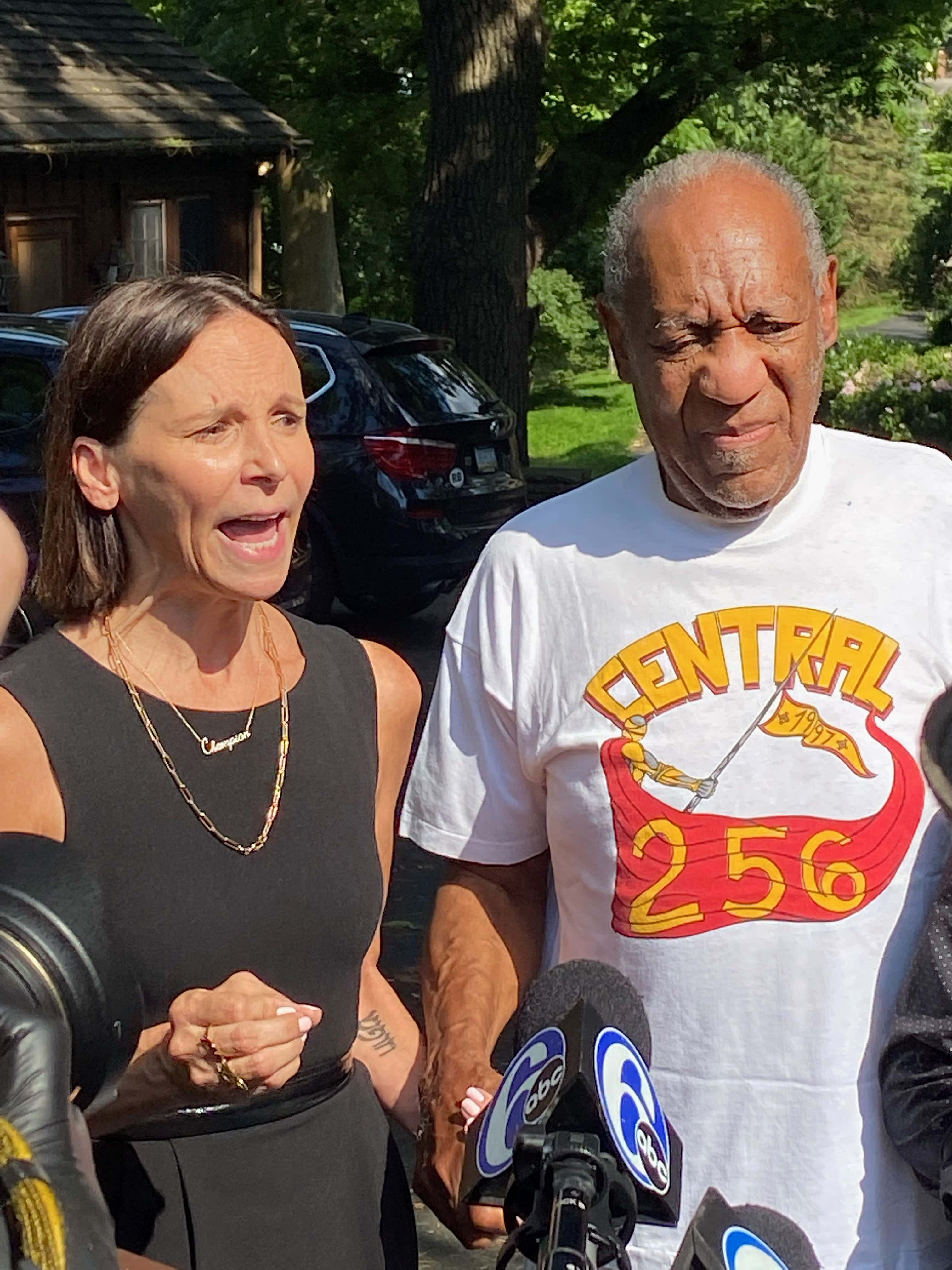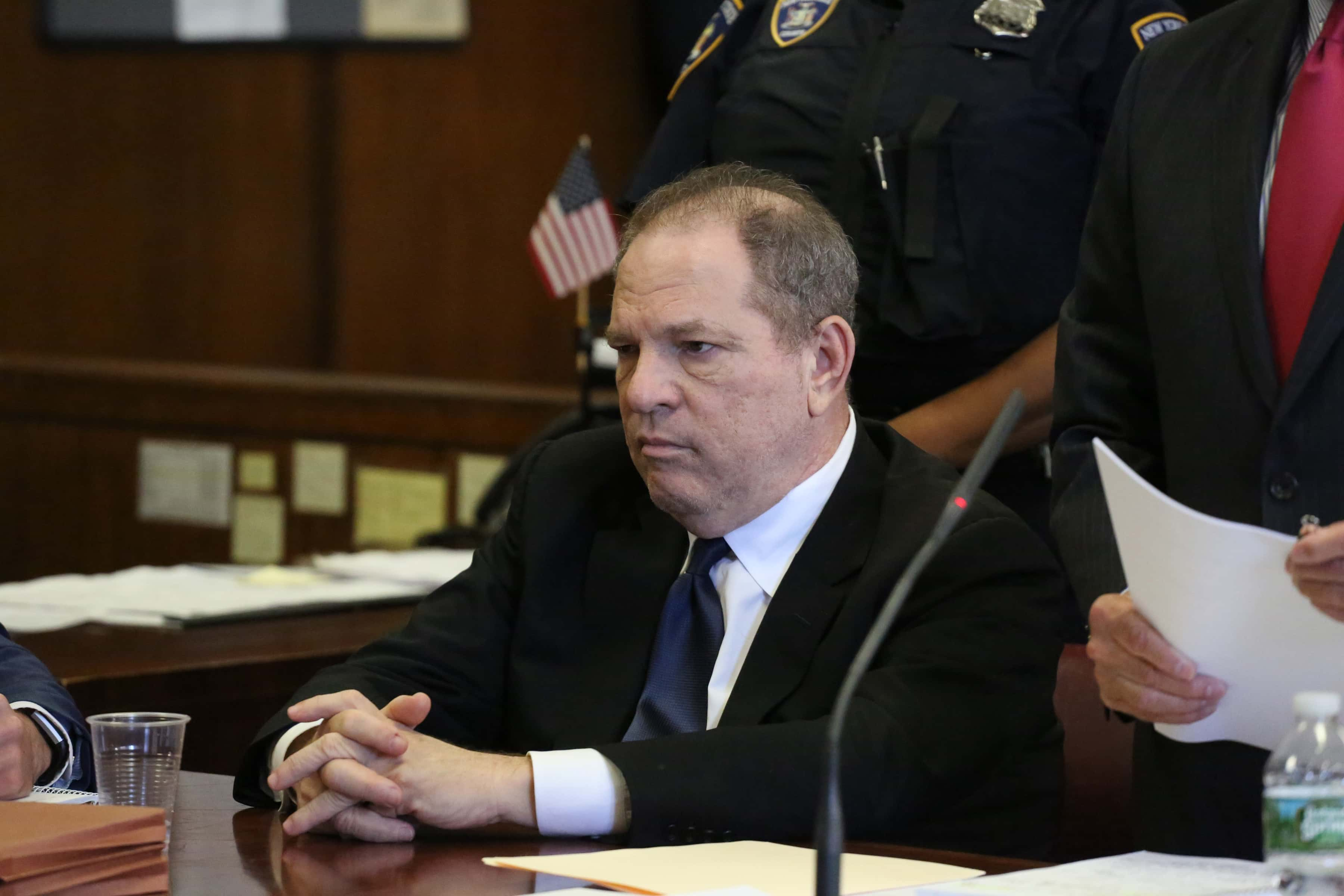Will Harvey Weinstein be freed next? Here’s how Bill Cosby verdict could impact his case

In a shocking turn of events, actor and stand-up comedian Bill Cosby was released from prison on June 30. A Pennsylvania Supreme Court ruled that his trial was "unfair", thereby allowing Cosby to walk out of jail after two years. The verdict has inspired a lot of backlash, but it appears some people see it as a good thing. Harvey Weinstein's lawyers believe the verdict could set the stage for the disgraced producer to walk out free as well.
In 2020, Weinstein was sentenced to 23 years in prison after being found guilty on numerous counts. He is currently serving his sentence at the Wende Correctional Facility in New York. In March, we reported that Weinstein tested positive for the coronavirus and was isolated. The verdict also led The Queen to strip his CBE honor in September 2020. In November, we also reported that Weinstein was being constantly monitored after concerns emerged he could die by suicide like Jeffery Epstein.
RELATED ARTICLES
Why was Bill Cosby denied parole? Disgraced comedian refused to take sex offender therapy
Beyond his Covid-19 result and monitoring, little news has emerged about Weinstein since he was sent to Wende. However, it appears that his lawyers are still fighting for his release, despite the strong public sentiment against the movie executive. Now, they believe they have been handed an opportunity following the release of Cosby, who was also convicted for sexual assault.

Will Weinstein walk free?
Speaking to The Daily Mail, Weinstein's lawyers said that Cosby's release "reaffirms our confidence" that Weinstein would be released too. Attorney Arthur Aidala told the Mail that there was an "abundance of issues that cry out for a reversal," in Weinstein's case. She did not specify what those issues were, but some of them have been listed in a large 106-page appeal. The confidence in reversal appears to stem from the use of character witnesses at both trials.
During his trial in the 1980s, the judge allowed five other accusers to testify in court to establish a "pattern of behavior". At the time, the PA Supreme Court did not rule on the matter of character witnesses, because Cosby's deal with the prosecutor meant it was irrelevant. Likewise, the judge in Weinstein's case also allowed a character witness to testify. Essentially, the witnesses allow prosecutors to show the jury that the defendant has a history of "prior bad acts".
However, the use of character witnesses is not the reason Cosby walked free. The court did not rule on that matter, but rather on the failure of the prosecution to keep its end of the deal. District Attorney Bruce Castor promised that Cosby would not be criminally prosecuted, in exchange for Cosby's testimony in a civil trial. However, that admission was used by Kevin Steele, who succeeded Castor to criminally charge Cosby, violating his non-prosecution deal.

Weinstein though received no such deal. He pleaded not guilty and was found guilty by a New York jury. Nonetheless, his lawyers believe they have a case to dismiss since Cosby walked free. Their appeal argues that Weinstein didn't receive a fair trial, with a key point being the use of character witnesses. According to Weinstein's lawyers, the witnesses influenced the jurors to declare Weinstein guilty.
"This decision also reaffirms our confidence that the Appellate Division in New York will reach the similarly correct decision," Aidala said. It is unclear when their appeal will be heard in court, and if the Cosby verdict will have any bearing on the decision of the New York court. Nonetheless, the fact that Cosby was allowed to walk free on a technicality is expected to have a lot of weight in future cases.










